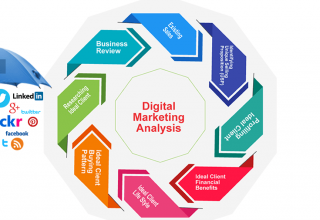
The other day I met with Wagaki at KICC, very confused. I had made my usual visits to the MICE facility to see what’s currently going on for exhibition. Being my good neighbor I was concerned to find her at the terraces, making frantic calls. I could only imagine something was wrong. Wagaki owns an events company, something she was doing as a hobby before resigning her prestigious banking and marketing position to take up on a full time basis. As the saying goes, before you know the way out of the forest, you will get lost, at least once.
On this particular day, she was preparing to stage an international celebration that a cabinet minister was attending the following day. The occasion would attract who is who in the creative industry. As usual, she had offered her young firm for the competitive job of putting together this event. The fact that Wagaki is new in the industry, she contracted a number of suppliers for the various components of the process, who all promised to deliver on time. She knew she had to give her best, because that could open more opportunities in future. She had gone ahead and paid full amounts for all the suppliers, particularly the outside caterer and another firm charged with décor and outlook. This was 3pm and none of the two suppliers could be reached. They had not given updates on work plans, had not started anything and of course were not on site. To make matters worse, she did not have any surplus financial resources to contract any other suppliers for the same jobs!
Many times, we get ourselves in such situations with suppliers in different businesses. Goods that were supposed to be supplied are not delivered on time, or maybe they are faulty. Work that was supposed to be done is lagging behind and the schedule is not updated. Quality of work is compromised in cost cutting to increase margins, missing out on the bigger picture of long term business relationship. Sometimes the mess is too much because it affects other relationships in the value chain.
How do we manage suppliers particularly in business setting? Below are five key ways to consider in a procurement process or prequalifying suppliers to engage in business.
1-Economics of Scale
Consider the fact that, the more goods you buy, the better pricing for most items, either locally manufactured or in case of importation. Most organisations plan well and procure goods at the beginning of the year to last for longer period, even a year. This has the downside of losing should there be a reduction on prices on the same goods later, and initially on cost on inventory. The merits however, exist in case of higher prices due to fluctuations of interest rates, foreign currencies and other factors as well as benefiting from economies of scale.
2-Preapproval of Works
This avoids delivery of substandard work, and standardisation across the network. It is very common for organisations that have branches and would want different suppliers originating from the regions where they operate to work with.
3-Down Payment
Consider paying a supplier a percentage of the total cost of procurement, and the final amount upon delivery and certification according to the agreed standards. This leaves a great lot of motivation for the supplier to comply fully.
4-Binding contracts
Contracts detail terms of service, payment, mode of delivery and timelines. They also explain the consequences for non-compliance. Contracts give a fallback position to your business and cushion you against any shocks that might affect you in case of delays or non-performance. It does not matter how small a tender is, insist on laid down terms, then your business is safe.
5-Background check
It is important to carry out independent checks on any supplier before engaging them. Firms with history of default, late delivery and poor customer service should be avoided, otherwise, you fall in the same trap and end up regretting.
Above all, planning still remains key in business so that a delay in delivering stock does not affect your customers. Remember the end customer holds keys to the success of your business.
What’s your experience with suppliers? Please share with us in the comments below.

















